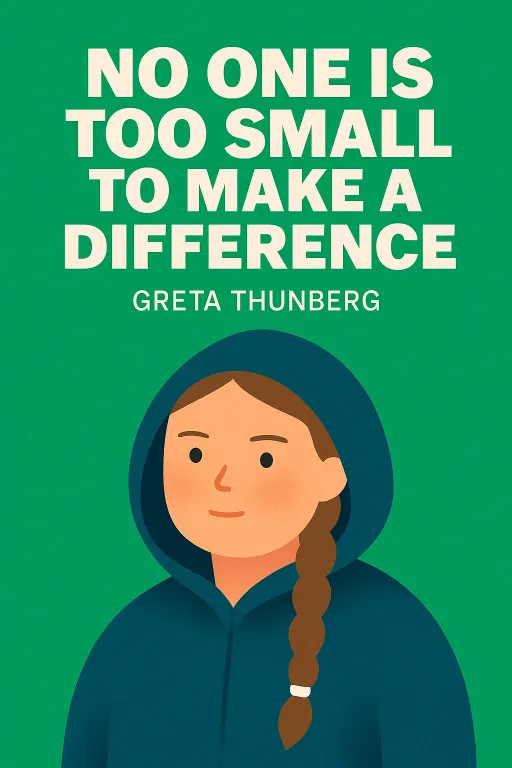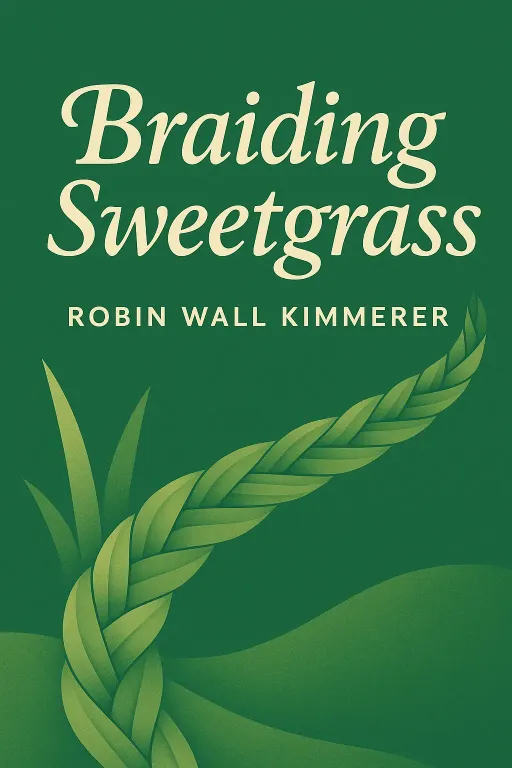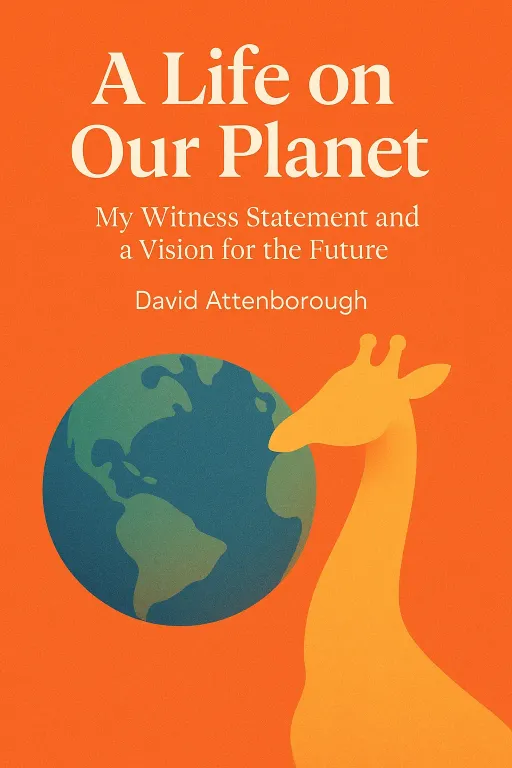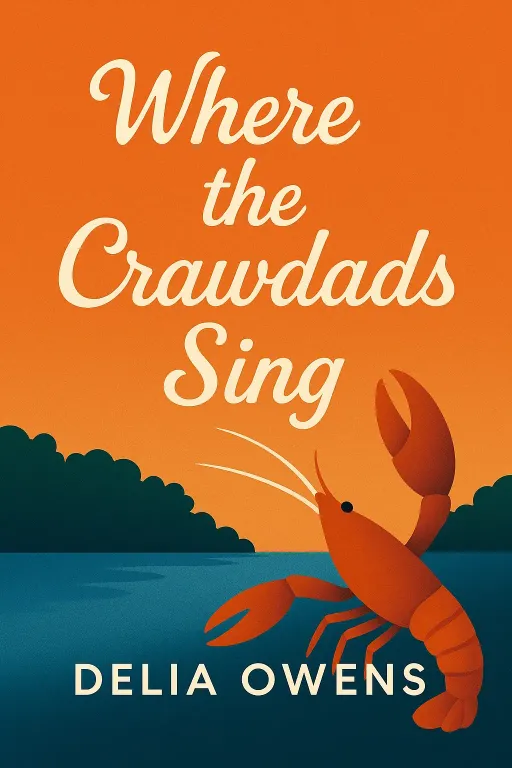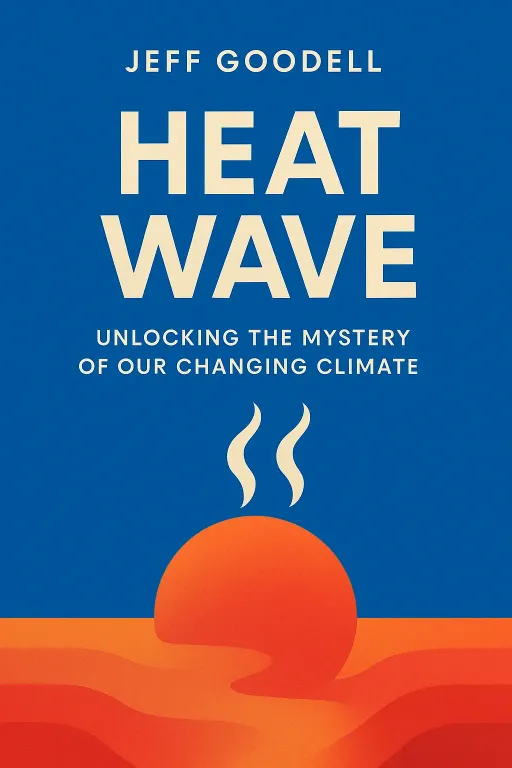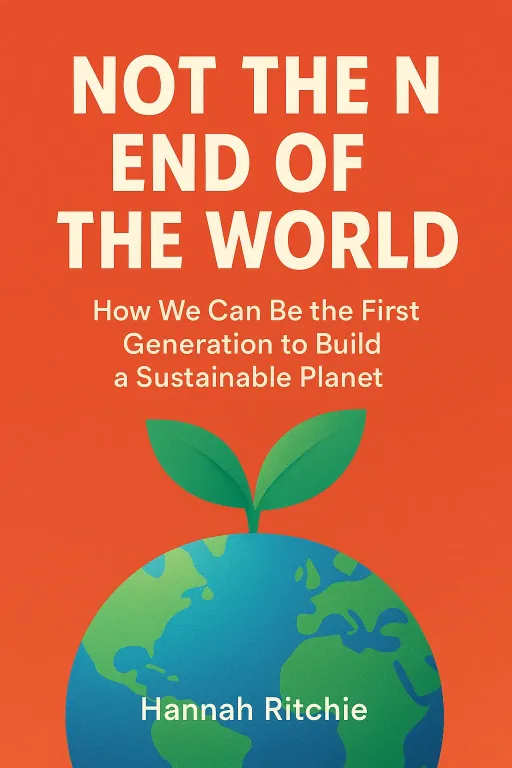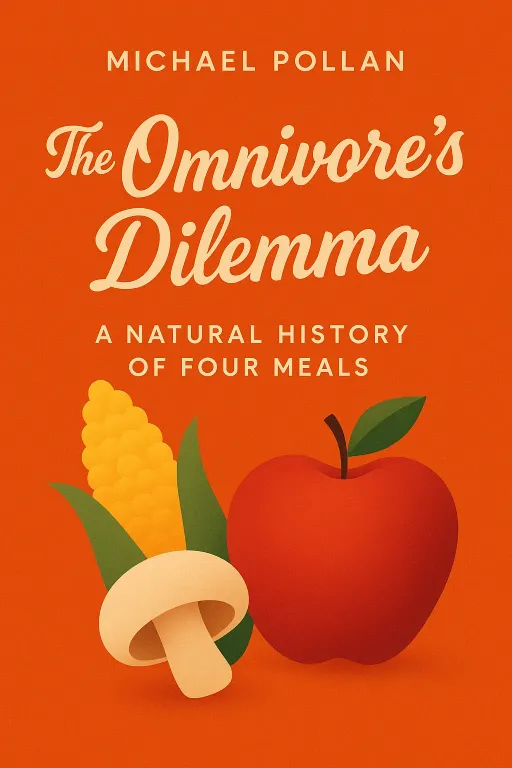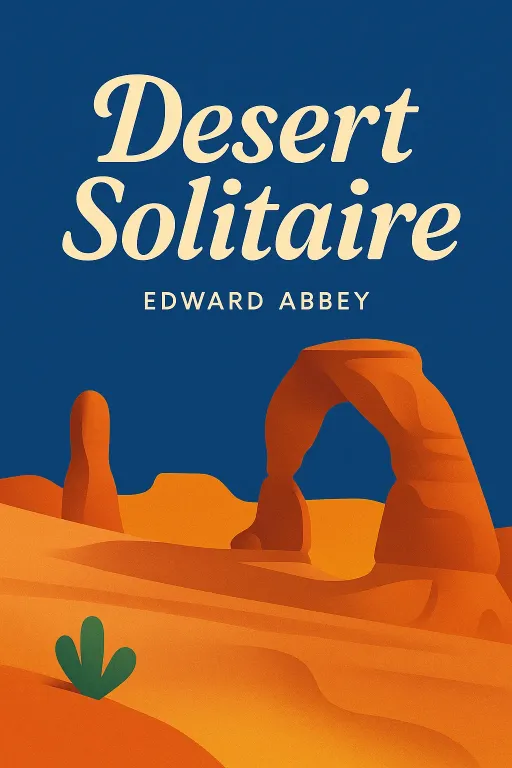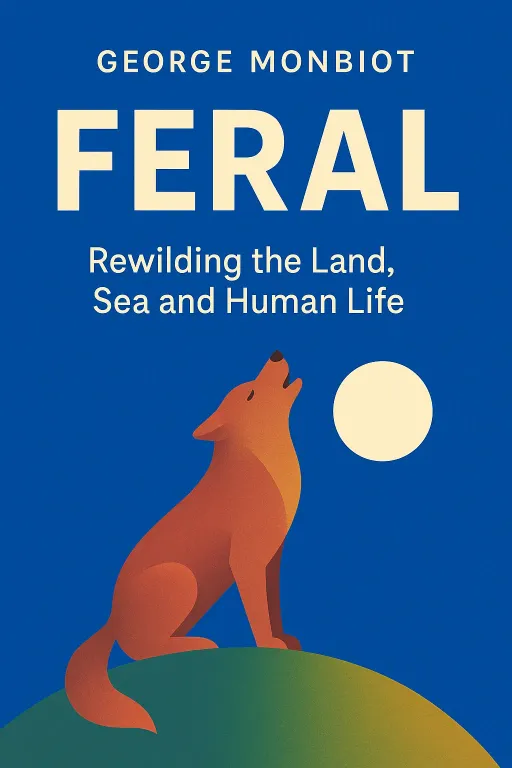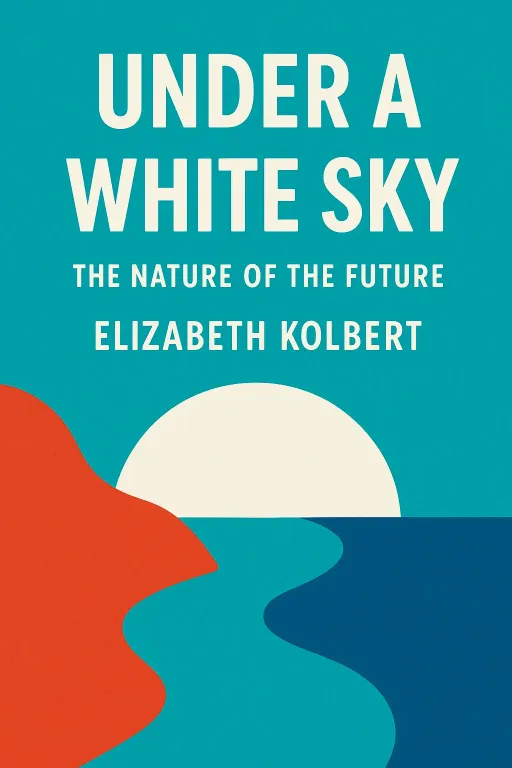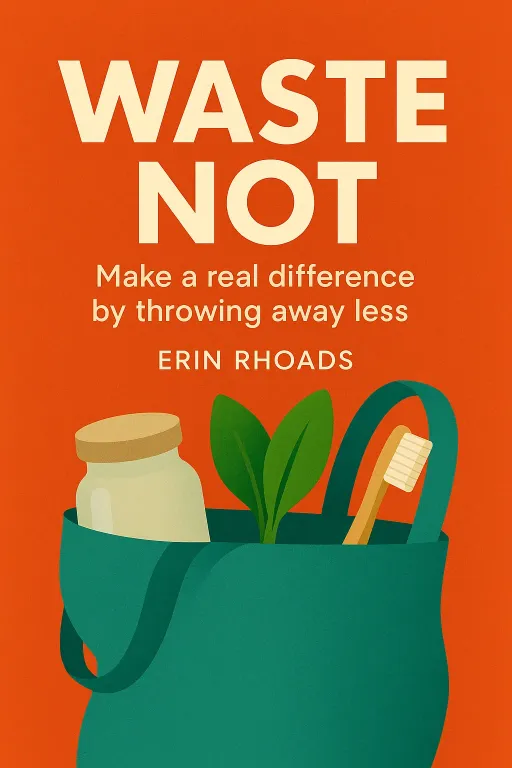
The Tyranny of the Tiny Jar
10 minGolden Hook & Introduction
SECTION
Mark: Alright Michelle, gut reaction. I say the book title is Waste Not. What image pops into your head? Michelle: Oh, definitely someone smugly holding up a single mason jar containing their entire year's worth of trash, while I'm over here trying to figure out which bin the pizza box goes in. It’s intimidating! It feels like a judgment. Mark: Exactly! The tyranny of the tiny jar. Well, what's brilliant about today's book, Waste Not by Erin Rhoads, is that it's the complete opposite of that. Rhoads is this fantastic Australian eco-blogger who actually became a consultant for the hit TV show War on Waste right as public consciousness about this stuff was exploding. Michelle: Oh, wow, so she was right in the middle of that cultural moment. Mark: She was. And her whole approach is about being practical and guilt-free, not perfect. It’s a guidebook for the rest of us who are still figuring out the pizza box.
The Relatable Epiphany and the Tyranny of the Tiny Jar
SECTION
Michelle: Guilt-free is the magic word. Because the eco-guilt is real. You forget your reusable bag one time and you feel like you've personally failed the planet. It’s paralyzing. Mark: It is, and Rhoads starts by admitting she was exactly the same. She tells this story about going to a music festival and buying a super cheap, £15 tent with the full intention of just abandoning it there. She even quotes herself from a holiday years ago, saying, "I love being on holiday because you don’t have to recycle." Michelle: Okay, I have never left a tent behind, but I have 100% had that holiday brain where the rules of normal life just seem to vanish. That’s painfully relatable. Mark: Right? It establishes that she’s not starting from a place of moral superiority. Her change came from a single, powerful moment. She was sick in bed and watched a documentary called 'The Clean Bin Project.' And in it, there was footage of Laysan albatross chicks on Midway Atoll. Michelle: I think I know where this is going, and I’m already sad. Mark: It’s gut-wrenching. The chicks’ stomachs were full of plastic. Bottle caps, lighters, fragments of junk that their parents had mistaken for food and fed to them. And for Rhoads, seeing that was the epiphany. It was the moment the abstract idea of "plastic pollution" became a concrete, emotional reality. Michelle: Wow. That’s the kind of image you can’t unsee. It moves it from an intellectual problem to a visceral one. But even with that motivation, the images we see of the zero-waste movement are so extreme. The tiny jar of trash, the people who make everything from scratch. It still feels like a full-time job. Mark: And Rhoads addresses that head-on. She tells this hilarious but stressful story about trying to make Worcestershire sauce from scratch because she couldn't find it in a glass bottle. She calls it the "Worcestershire Sauce Debacle." She was in the kitchen, stressed out, ingredients everywhere, and realized her obsession with perfection was completely unsustainable for her own sanity. Michelle: I love that. She had her own "I've gone too far" moment. Mark: Exactly. And it led her to this core principle that runs through the whole book: "It is about doing the best you can, with what you’ve got, where you are." It’s not about the jar. In fact, she has a fantastic quote about it. She says, "Zero-waste living is not about fitting waste into a jar; it’s about joining a growing group of concerned citizens who want a new system."
Waste as a Design Flaw: Hacking the System from Your Kitchen
SECTION
Mark: And that idea of wanting a 'new system' is central to the book's most profound insight. The reason we're all drowning in waste isn't because we're all individually bad people. It's because we're living inside a system that is fundamentally broken. Michelle: What do you mean by broken? Mark: She describes it as a linear 'take-make-dispose' economy. We take resources from the earth, make something designed to be used briefly, and then throw it 'away'. But as she points out, there is no 'away'. Nature works in circles—a fallen branch decomposes and becomes nutrients for a new tree. Our system works in a straight line that ends in a landfill. Michelle: That’s a great way to put it. So the problem isn't just my recycling habits, it's the design of everything I buy. Mark: Precisely. The book’s most powerful idea is that "Waste is a design flaw." It's not an inevitable part of life; it's a choice made by manufacturers. And once you see it that way, you stop feeling so guilty and start feeling more empowered. You’re not just 'reducing your waste'; you're finding clever ways to hack a badly designed system. Michelle: Okay, I like that framing. It feels less like a chore and more like a rebellion. But where do you even start with hacking a global economic system? That sounds even more intimidating than the tiny jar. Mark: You start in the kitchen. The book points out that for the average household, a staggering 40 percent of what’s in the general waste bin is food waste. Michelle: Forty percent? That’s almost half the bin! That’s just… scraps and leftovers? Mark: Yep. Food that goes to landfill rots without oxygen and produces methane, a potent greenhouse gas. But if you compost it, you’re not just avoiding that, you’re creating valuable food for the soil. You’re closing the loop. But the book offers an even simpler starting point. It’s a story she calls "The Builder's Blender Revelation." Michelle: I’m intrigued. Who is The Builder? Mark: Her partner. One day, their blender broke. Her immediate instinct, like most of ours, was to go online and buy a new one. But her partner stopped her and asked a brilliant question: "So do you need a blender, or do you only need to blend?" Michelle: Oh, that’s good. That’s really good. Mark: Isn't it? It completely reframes the problem. She ended up just borrowing a blender from his sister. She saved money, resources, and the hassle of storing another appliance. It’s a perfect example of rethinking consumption. You don't always need to own the thing; you just need the function it provides. Michelle: That mindset shift from ownership to access feels huge. It applies to so many things—tools, party supplies, books… Mark: And it's a way to hack the system. The system wants you to buy a new blender. Borrowing one is a small, quiet act of rebellion. She even managed to get The Builder, who was initially skeptical of her "hippie stuff," to become a proud, enthusiastic composter, just by showing him how much less trash they had each week.
The Quiet Activism of Everyday Choices
SECTION
Michelle: Okay, I love the blender story. It’s a great mindset shift. But how does one person borrowing a blender actually change a broken system? It feels like a drop in a very polluted ocean. Mark: That’s the final, and maybe most beautiful, part of the book. It redefines what activism is. It argues that these small, everyday choices are a form of activism. It’s a quiet activism. Michelle: What does that look like in practice? Mark: Well, the book features an expert on mending clothes, Erin Lewis-Fitzgerald, who argues that visible mending—patching your jeans with a brightly colored thread instead of trying to hide the repair—is a form of activism. It’s a public statement against fast fashion and throwaway culture. It says, "I value this item, and I refuse to just throw it away." Michelle: I’ve seen that! It’s becoming trendy. So activism doesn't have to be loud and angry. It can be a needle and thread. Mark: Or a kid's crayon. The book tells this incredible true story about a five-year-old girl in the UK who wrote a letter to the restaurant chain Pizza Express. She just said that plastic straws are bad for animals and they shouldn't use them. Michelle: No way. What happened? Mark: Pizza Express listened. They committed to banning plastic straws in all their restaurants. That one letter from one child is stopping an estimated 1.8 million straws from being used each year in their London locations alone. Michelle: That’s unbelievable. That gives me chills. A five-year-old did that. Mark: It shows that your voice matters. And these individual actions can scale up. The author, Erin Rhoads, started with her personal blog, sharing her journey. That led to her co-founding a group called Plastic Bag Free Victoria. They collected thousands of signatures, lobbied politicians, and were a key part of the pressure that led to the state of Victoria banning single-use plastic bags. It all started with one person deciding to make a change.
Synthesis & Takeaways
SECTION
Mark: When you put it all together, the book lays out this beautiful, empowering pathway. It starts with a personal, emotional, and—crucially—forgiving realization about your own role in the system. Michelle: The albatross moment, but without the crippling guilt. Mark: Exactly. That personal shift then empowers you to make small, practical changes in your immediate world, like the kitchen. And you start to see those changes not as chores, but as clever hacks or small rebellions against a flawed design. Michelle: And those small rebellions, when you do them consistently, become a form of quiet activism. Mark: Yes. They ripple outwards. Your friends see your visible mending, your partner gets into composting, you write a letter. And suddenly, your personal choice is part of a collective movement that can, and does, create real-world, systemic change. Michelle: That’s a much more hopeful and less overwhelming way to think about it. So, for someone listening who feels inspired but still a bit overwhelmed, what is the one, simplest first step the book recommends? Mark: It’s so simple. She calls it a "bin audit." Just look in your bin. No judgment, no guilt. Just observe. See what you're throwing away every week. Is it coffee cups? Plastic wrap? Food scraps? Just identify one thing that shows up all the time. Michelle: And then you tackle that one thing. Mark: You just tackle that one thing. That’s your starting point. The book is full of alternatives, but the first step is just awareness. Michelle: I love that. It’s not about doing everything at once. It’s about doing one thing. It makes me want to go look in my own bin right now. Mark: Which leads to the perfect closing question for our listeners. What’s the one thing in your bin you see every week? And what would it take to say goodbye to it? Michelle: A great question to ponder. This has been fascinating, Mark. Mark: It’s a wonderfully practical and inspiring book. Michelle: This is Aibrary, signing off.
